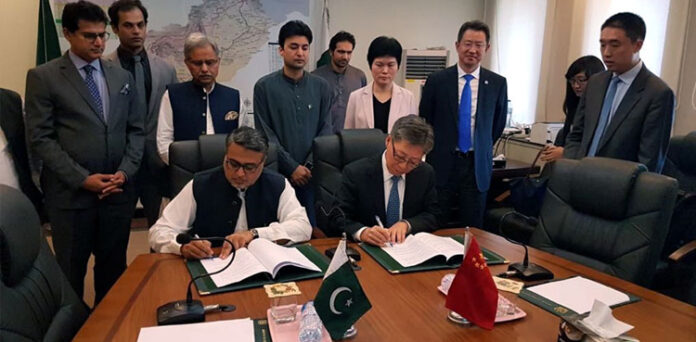Pakistan and China have decided to expedite development work on the western route of the China-Pakistan Economic Corridor (CPEC), a private media outlet reported on Saturday.
The decision was made during a meeting between Communications Minister Murad Saeed and a high-level delegation of the CPEC’s joint working group in Islamabad.
The joint working group on the occasion also signed a memorandum of understanding (MoU) amid at improving Pakistan’s transport infrastructure.
The group decided to construct 1,270km-long roads on the western route under the second phase of CPEC. The roads will be constructed from Gilgit to Chitral, Dera Ismail Khan to Zhob, and Peshawar to Dera Ismail Khan. Swat Expressway Phase 2 and Karakoram Highway will also be constructed/upgraded under CPEC’s second phase.
The Chinese delegation praised the performance of the Ministry of Communications and welcomed the hospitality of the Pakistani government during its visit.
The Chinese transport minister said that the CPEC project will share its benefits with the next generations of both countries. He stressed the need for timely completion of the mega economic project.
Murad Saeed on the occasion lauded the hard work, passion and professionalism of the Chinese engineers working on the project.
He said that the federal government has prioritised to remove all hurdles in the completion of CPEC, adding that the project will create opportunities for employment, infrastructure development and businesses in the country.
Saeed also briefed the Chinese delegation regarding the establishment of the CPEC Authority.
The minister thanked the Chinese government for its support to the Pakistani stance over the Indian occupied Jammu and Kashmir. He said that China is a role model for economic development and poverty alleviation.





Electric man